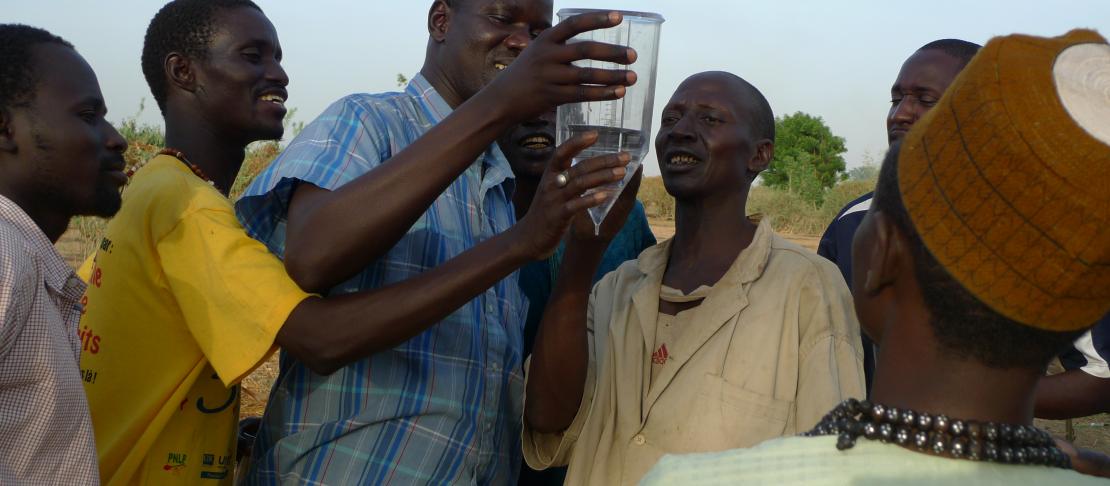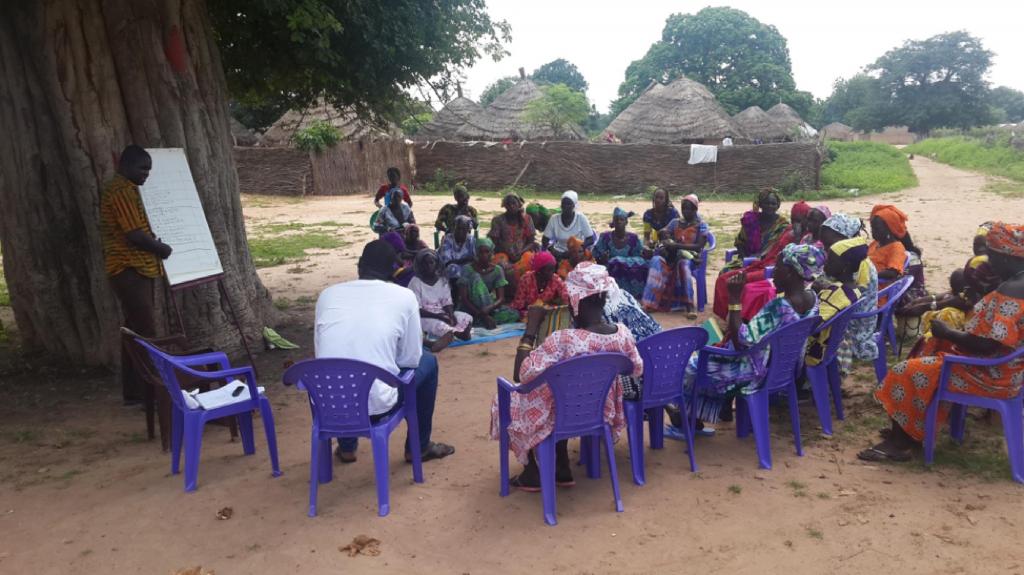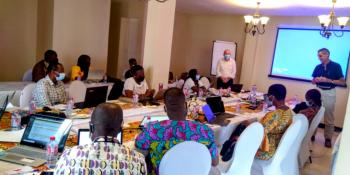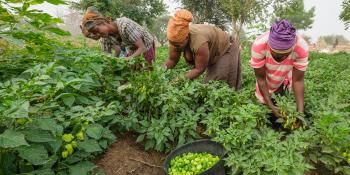Weather and climate information services in Senegal: Lessons for future initiatives

In recent years, participatory methods have gained wider acceptance as an effective way to gather feedback from users of climate services and improve products designed to help them adapt to climate variability. Studies that provide evidence for this assumption, however, are few and far between.
A recent paper by Brian Chiputwa and team, entitled Transforming climate science into usable services: The effectiveness of co-production in promoting uptake of climate information by smallholder farmers in Senegal and co-authored by scientists from World Agroforestry Center (ICRAF), Food and Agriculture Organization of the United Nations (FAO), the CGIAR Research Program on Climate Change, Agriculture and Food Security (CCAFS) and the Senegal National Meteorology Service (ANACIM), examines the uptake and use by farmers of weather and climate information services (WCIS) following a particular kind of participatory method known as a Multi-disciplinary Working Group (MWG).
What are Multi-disciplinary Working Groups (MWG)?
Multi-disciplinary Working Group (MWG) is a weather and climate information services (WCIS) co-production initiative in Senegal aimed at influencing farmers uptake of weather and climate information using participatory methods that engage farmers.
Using surveys and analysis, the team was able to quantify the effectiveness of this method in Senegal and provide support for this model in future approaches to climate services.
The study, published in Climate Services, provides insightful evidence on the benefits of WCIS programs in a case of continual collaborations that combine knowledge and perceptions of multiple actors including producers, purveyors and users. Second, it provides some methodological insights based on the novel survey methods and rigorous analytical approaches in evaluating the benefits of WCIS with respect to users.
These contributions offer some lessons to researchers and development practitioners involved in the design, implementation, monitoring and evaluation, and scaling of similar initiatives to the rest of the Sahel and other regions of Sub-Saharan Africa and beyond. The study addresses some of the challenges in impact evaluation of WCIS in Senegal. It reveals that MWG improves farmers’ awareness, access and use of WCIS.

A focus group discussion on use of weather and climate information among women in Kaffrine, Senegal. Photo courtesy of the paper authors.
Behavior changes resulting from the use of forecasts
The results of the study collected from 795 households in Senegal point out the importance of the MWG in farmers use of WCIS in informing farm management decisions. A closer look at the results shows that exposure to the MWGs among farmers using seasonal information on rainfall total increased the use of this information on the choice of crop varieties grown by 25%.
For instance, there was a 25% increase of choice in groundnuts, maize and millet and 25% while there was a 22% increase in the choice of the field location to plant different crops and 13% to intercrop. The field location to plant different crops was also positively influenced as well as the decision to intercrop or not and the type of crops to grow and crop mix.
The study sheds light on the fact that agricultural producers who were exposed to the MWGs and use all three seasonal forecasts (daily, weekly and seasonal) have a 22% higher probability that they used improved seed, 11% higher probability of using manure and a 9% higher probability of using chemical fertilizers compared to users in non-MWG locations.
In addition, conclusions show that farmers with access to the MWGs had a 23% higher chance of also using improved seed varieties, a 16% higher chance of using manure and a 24% higher chance of using chemical fertilizers.
A contribution to existing literature
These results support earlier studies that affirm that seasonal forecasts are decisive in informing producers to consider the crop type to grow.
Scientists behind the study assume that the gap between climate knowledge production and its subsequent use may largely be due to a disconnect between the needs of users and the information produced by scientists.
A study led by Hassan and Nhemachena (2008) found that in several African countries, farmers tend to use seasonal forecast to vary the harvesting dates. Another study reports that farmers in Burkina Faso who use the information have impacts on the market based on their decisions to sell or store their production depending on the weather and climatic realities.
In the same vein, Chiputwa et al. (2020) reveal a significantly higher proportion of farmers in MWG locations that use information on cessation of rains to inform the timing of crop sales (21.4%).
These findings are consistent with conclusions in Moeletsi et al. (2013), which noted that distributing daily weather forecasts three times a week influenced farmers in South Africa to tailor their decisions on when to weed and apply fertilizers.
This scientific contribution aspires to provide some valuable lessons to those involved in the design, implementation, monitoring and evaluation, and scaling of similar initiatives to the rest of the Sahel and other regions Sub-Saharan Africa (SSA) and even beyond.



